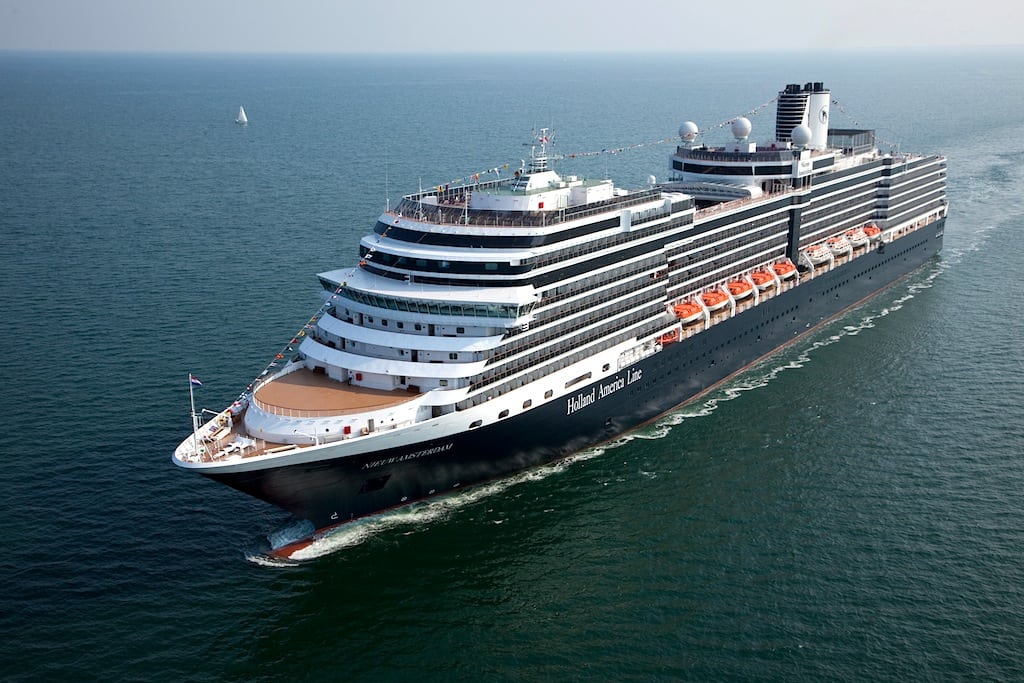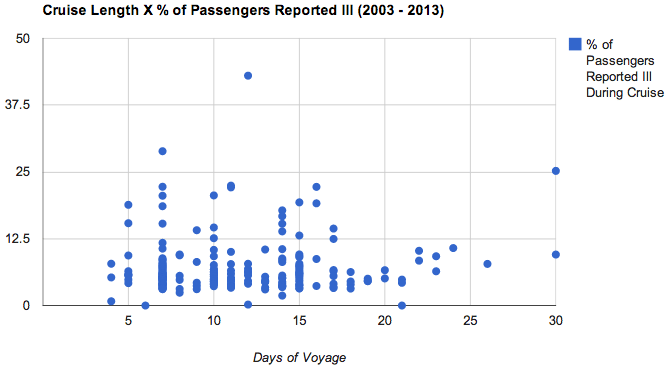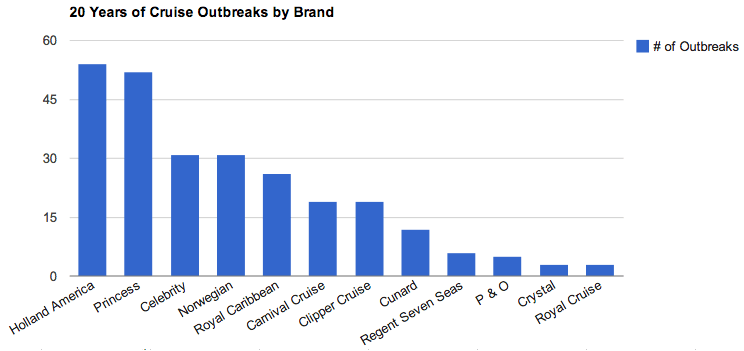Virus Outbreaks Are More Likely on Longer Cruises

Skift Take
Travelers that are interested in taking a cruise, but worried by the prospect of another norovirus outbreak, should stick to shorter voyages, suggests data reported to the CDC.
In the last 10 years, 225 outbreaks have been reported to the CDC. It's difficult to tell what percentage this is of total cruises taken as there is currently no comprehensive list of annual cruise departures.
We estimate that it is less than 5 percent; however, cruise ships are only required to report an outbreak when 2 percent of passengers are identified as ill.
The majority of virus outbreaks in the past 10 years occurred on voyages that were between 7 and 15 days long, according to CDC data. It's rare for more than 12 percent of passengers to fall ill in that time.
A closer look at data suggests that longer cruises are more likely to lead to outbreaks.
This is because there's a greater chance of passengers getting sick onboard and increased likelihood that the ship will meet the 2-percent threshold.

The average cruise outbreak reported to the CDC in the last 10 years occurred on a 12-day journey with an average of 6.6 percent of passengers reported ill.
Holland America's Argument
More outbreaks have been reported onboard Holland America and Princess cruise ships than any other brand in the past 20 years.
Fifty-four outbreaks have occurred on Holland America ships in the last 20 years, representing less than 1 percent of all voyages operated by the brand.
Of those 54 outbreaks, almost half or 22 outbreaks occurred on just two ships.
In a statement responding to Skift's inquiry about the high number of incidents, a Holland America spokesperson responded, "Since 2010, all but one of the Holland America Line CDC log cases occurred with ships sailing itineraries of 10 days or longer. The other one was a 7-day itinerary."
One explanation for the repeat outbreaks on ships is the length of voyage.
"It should also be noted that ships tend to repeat similar itinerary deployment lengths from year to year so the same ships tend to sail the longer voyages," explains the Holland America spokesperson.
Twelve of the outbreaks that occurred onboard a Holland America ship occurred on the Ryndam. The average voyage on this ship over the past 20 years was 12 days.
Another ten outbreaks occurred on the Amsterdam. This ship logged an average 17 days at sea during each trip with the exception of one 114-day trip in 2002.
Reducing the Risk of Outbreaks
Cruise crews begin cleaning procedures as soon as signs of an outbreak are detected to disrupt the spread of the virus. And crew members embark upon an accelerated intensified cleaning once passengers disembark.
These procedures include disinfecting individual cabins and all public venues.
Every cruise line maintains their own outbreak prevention and response plan. And the procedures implemented between journeys are meant to create an "infections barrier."
The CDC's Vessel Sanitation Program also performs two unannounced inspections of ships each year. The inspectors check the temperatures of freezers and dishwashers, examine the overall sanitation and cleaning procedures, check crew quarters, and test chlorination levels in public pools.
The VSP also works with cruise lines designing new ships to make sure the ship design minimizes the potential risk of outbreaks.
Despite all these precautions, a CDC spokesperson says the agency "has no way of knowing" if the efforts will reduce the frequency of outbreaks.
"If you can't identify the source, you can't automatically say that the risk will lesson."
The virus can be spread through human contact, contaminated food, or contaminated surfaces.
One solution is a norovirus vaccine. There is one vaccine currently in development, but it is still years away from sale.





